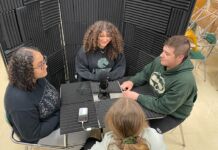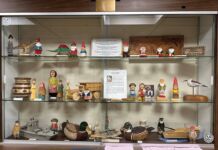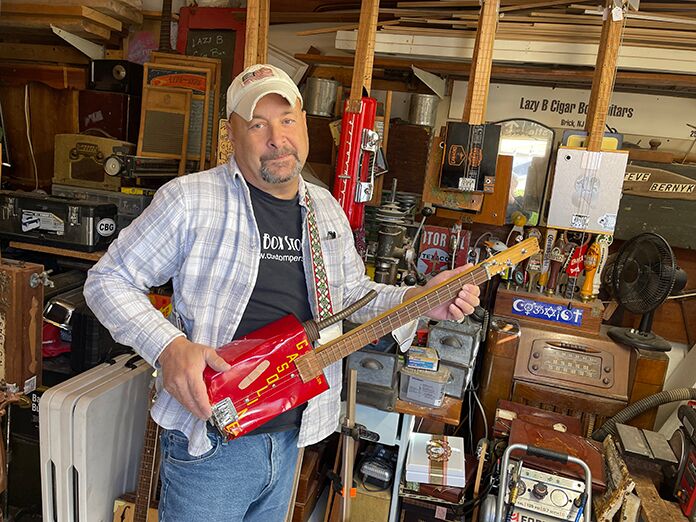
BRICK – The history of home-made cigar box guitars goes back to the 1840s when manufactured cigar boxes were first introduced. Their size and availability made the boxes the perfect body for a low cost, homemade instrument.
There was a resurgence of the do-it-yourself instrument during the Great Depression, when people would make the instruments because they couldn’t afford to buy real guitars from a store, said Brick resident John Bernyk, who has made and sold over 500 cigar box guitars.
His interest in creating the three-stringed instrument was piqued as a kid when he would take rubber bands and stretch them over empty tissue or cigar boxes and pretend it was a guitar.
“During the Depression, they would make guitars out of cigar boxes and gas cans and things like that, but I never really saw one until about 15 years ago on Ebay,” he said. “I bought it and I played the heck out of it.
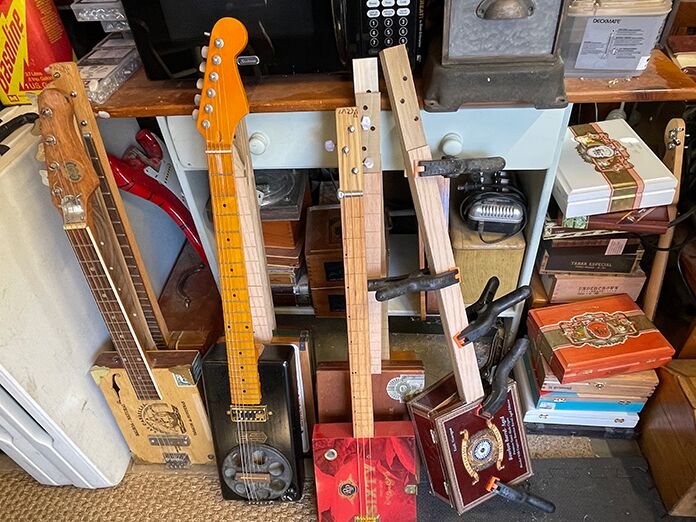
“I looked at it and thought, I can make these myself, because I have a carpentry background, so it was something I got into and I started making them and playing them,” he said.
Bernyk, who is a semi-retired educator and school administrator, took guitar lessons as a kid, but prefers the cigar box guitars.
He said playing his home-made guitars became a gateway to writing original songs, and his band, “The Cigar Box Stompers,” was formed, which includes Bernyk on (one of six) cigar box guitars, a drummer and a bass player.
The band gets a variety of local gigs. They play festivals, and they have even performed at the Stone Pony. He only plays the instruments he makes, he said.
Bernyk makes six cigar box guitars at a time, which are mostly created with wooden cigar boxes, but he has also used empty gas and oil cans (sometimes called “canjos”), washboards, valve covers, shovels and more.
Each guitar has a unique sound, based on the material it’s made from, and its size and shape.
To create a cigar box guitar, he notches the top of the cigar box to insert a wooden neck, which runs the entire length of the cigar box to achieve the right amount of string tension.
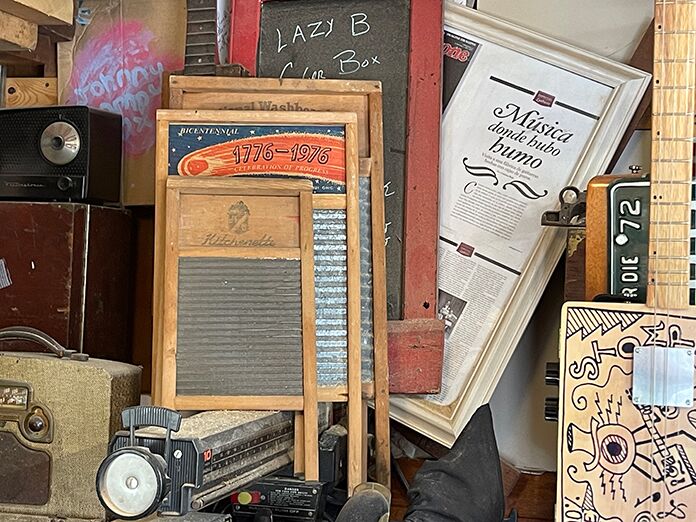
Next, he glues the neck on, then the fretboard, and rubs them with linseed oil. He sands the rough edges and attaches the hardware, which includes the tuners, a tailpiece and bridge. Finally, he adds the strings and a pick-up so it can be plugged into an amplifier.
The basic model of the “Lazy B” guitar (named after a ranch his family owned in Phoenix, Arizona, where he was born and lived until he moved to Brick when he was five) has only three strings, partly because the strings on Depression-era cigar boxes were made out of whatever was available, like screen wire.
If they only had enough wire for two strings, they would make a two-string guitar, he said.
Also, having three notes is like a basic chord, which creates a bluesy sound, he added.
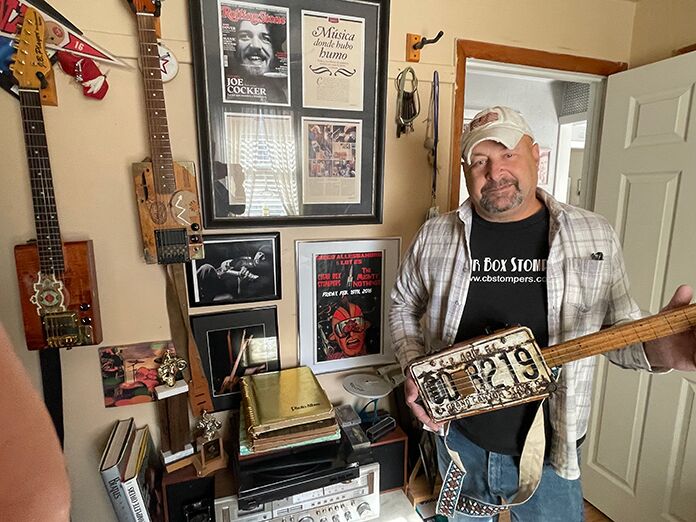
Bernyk attends and sells the cigar box guitars at some 20 craft and vendor fairs annually. The most popular ones are the cigar box guitars made from ornate cigar boxes, which he buys at a nominal cost from Cigars and More on Route 88.
“It’s really been a springboard to my music, to my writing and spreading the history,” Bernyk said.
The Cigar Box Stompers next gig is on December 15 at the Stanhope House in Stanhope NJ.

